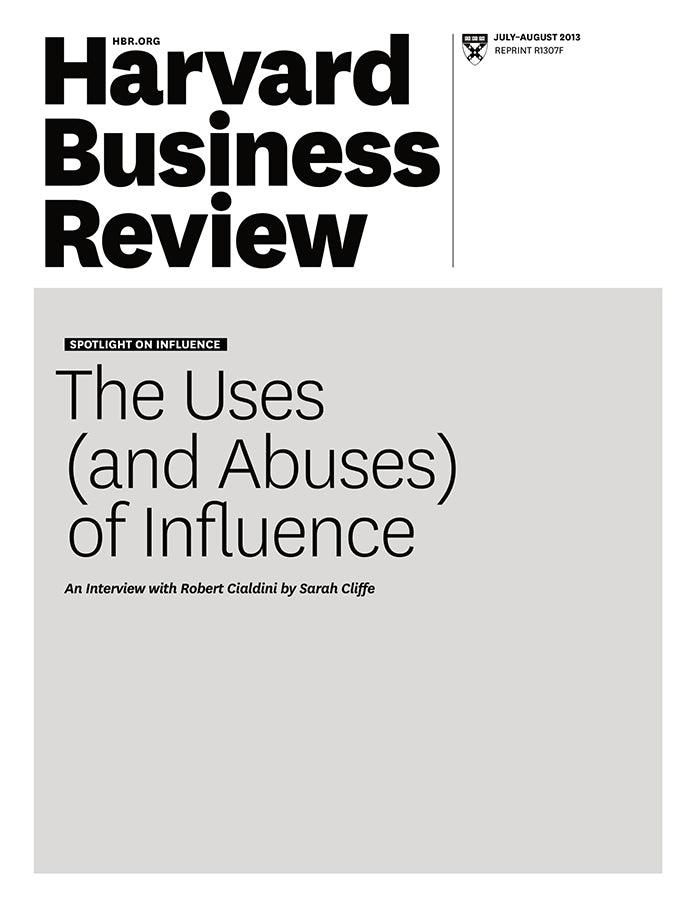The Uses (and Abuses) of Influence
€ 4.50 · 4.5 (694) · En stock

Reprint: R1307F The ability to persuade others to contribute to your efforts is a key skill for managers, for team members—for anyone who wants to elevate the probability of success. Research by leading social scientist Robert Cialdini has found that persuasion works by appealing to certain deeply rooted human responses: liking, reciprocity, social proof, commitment and consistency, authority, and scarcity. In this edited interview with HBR’s executive editor, Cialdini expands on the six principles of persuasion and how leaders can make effective, authentic use of them in everyday business situations. He also previews findings from new research on the ethics of influence and how dishonesty affects individuals and the organization.
Highlight, take notes, and search in the book In this edition, page numbers are just like the physical edition

The Uses and Abuses of Weaponized Interdependence
The ability to persuade others to contribute to your efforts is a key skill for managers, for team members--for anyone who wants to elevate the

The Uses (and Abuses) of Influence

The Uses (and Abuses) of Influence

Substance use, abuse, and addiction

The Uses (and Abuses) of Investigative Agencies

Handling Employee Substance Abuse: 4 Key Questions - Insperity

File:The uses and abuses of air - showing its influence in sustaining life and producing disease - with remarks on the ventilation of houses (1848) (14764073895).jpg - Wikimedia Commons

Utah Siblings Use TikTok to Fight “Parental Alienation” Order — ProPublica

Chronicling Trump's 10 worst abuses of power

How to Find Your Power—and Avoid Abusing It









